|
Yesterday the theme for Artstorm Daily Drawing Contest where I participate on Steemit was “Bad Art” to be interpreted in any way I wanted. Usually the themes are quite specific. For example, the day before was “Cowboys and Cowgirls” but this time we had a lot of interpretation freedom.
I don’t do well (at least at first) when there is no clear assignment what to create. I mean, yes, I do, but my fear tells me I won’t be able to. So before I started to draw Bad Art, I had no idea what to do with this theme. I actually wrote this as a comment to a fellow Steemian. But then the time came for me to sit down and draw something. And you know what? A vague idea came to me - I want to draw Cornelius the purple cardinal and Dietrich the mouse drawing each other. Usually they fight so it was a new activity for them. At first I didn’t know exactly what would they draw or even what would they say to each other. But I started drawing anyway. I drew the drawing boards first so that the contents would be visible at an angle. Then on the left side I drew Cornelius holding a brush. “Oh, that’s easy”, I thought. Why don’t I draw Dietrich on the right also holding a brush. And a palette! They both need a palette with some colors, right? At this moment the idea came to me of what would they draw - Cornelius would draw a lot of small mice and Dietrich - a lot of small birds. And so I did. And left some white space to show that their drawings aren’t finished yet. Now there was some empty space in the center of my drawing which asked to be filled in. At that moment I thought I don’t want to draw Pinky and Spiky today and Ausra has just finished drawing Victor the spider doing bad art. So Betsy the butterfly seemed quite appropriate. She often tries to stop Cornelius and Dietrich when they fight. As I drew her with her wings spread out she started talking! In my mind I heard how she asked, “What’s this? A crowd of mice and purple cardinals?” So I added this comment in the white space next to her. Obviously now Cornelius on the left started answering this question: “We’re competing for the largest number of Dietrichs and Corneliuses”. Now Dietrich on the right had to give a punchline. He said: “I feel the flow.” Is it funny? I don’t know. Is it surprising? Maybe. Is it perfect? Not at all… But it’s not the point. My point is that I didn’t have to wait for an exact dialog and set of characters and their actions to appear in front of me before I started drawing. Sometimes it does happen though. But more often than not, I grab my notebook, a pen, sit down and start drawing the frame. As I do this, gradually I get the idea what to draw next. I start to draw those characters and when I do, they naturally start talking. Before I know it, I have to stop them because they won’t shut up! The same free flow strategy works for me when I write, compose or improvise music too. In one way it resonates with the idea that William Somerset Maugham was talking about when he wrote: “I write only when inspiration strikes. Fortunately it strikes every morning at nine o'clock sharp.” I’m not as organized as he was, obviously. But this I know: Most often inspiration strikes when I sit down to do the work. It’s also what Steven Pressfield talks about in his book “Do the Work”. Will this idea work for you?
Comments
In general, I’m an optimistic person. I don’t dwell on negative thoughts too much. But sometimes I have episodes in my day or week or month when these toxic feelings take hold of me for a while.
One exercise that immediately deletes my negative thoughts is to count 10 or more things that I’m grateful for in the last 24 hours. Sometimes I do it in my mind while lying in bed. Sometimes I write them down. Like today. Here are 16 things that I’m grateful for today in the reverse order: 1. That I had a good night’s sleep; 2. That I didn’t check my phone in the middle of the night; 3. That I didn’t check my phone before going to bed; 4. That I said “I love you” to Ausra last night; 5. That we watched a romantic movie “Two Weeks Notice” together; 6. That we ate a juicy and sweet watermelon while watching this movie; 7. That I picked up apples that were fallen under our 5 apple trees; 8. That I drew Pinky and Spiky Underwater comic strip; 9. That I wrote a post “Whom To Ignore”; 10. That I ate tasty blueberry dumplings that Ausra’s mom cooked for lunch; 11. That Ausra and I came up with a funny theme for this week’s Pinky And Spiky Drawing Contest (Spiky Cuts Himself); 12. That I cut myself while shaving; 13. That together we cleaned our house; 14. That together we practiced our organ duet program for the upcoming recital at St Paul’s Cathedral in London next Sunday; 15. That we ate a tasty omelet which Ausra had made for breakfast; 16. That one Total Organist student sign up in the morning; As I wrote this list down for you, the first 6 were kind of easy to remember and the rest were much harder. But I have to keep going until the list of 10 is complete. Sometimes even 15 or 20. Don’t give up when it’s tough. Notice that not all of the things on this list will be positive because I have to be grateful for negative things too because they may lead to some positive outcomes or because they are a good exercise in humility. So there you have it. My 16 things that I’m grateful for today. AS soon as I wrote them down, I feel positive energy and happiness run through me again. I’m ready to create today. Try this exercise today and let me know if it helps. Today I am going to talk about things that we loved doing back when we were kids like six years old and why it is important for us today as adults. You see when a child like six years old was very fond let’s say of drawing right? I for example loved drawing and right up until maybe seventh or eighth grade I participated with my parents in summer camps where the students also drew and I was required to also draw together with them because my both parents at that time were both teachers of art. So I also was surrounded by art at home and I was basically creating, drawing all the time.
My favorite drawing theme was probably horses and airplanes I think too. So I remember that up until maybe thirteen years old. And then I stopped drawing somehow maybe because I had to choose music more, maybe because nobody else from my class drew at that time so basically I wanted to belong, I didn’t want to stand out and I forgot about drawing for a long time. But only three years ago approximately I started to feel the urge of drawing. And even before that I was very envious of artists, of visual artists who expressed their creativity in a visual way. Either in photography or creating pictures, paintings, drawings, sculptures. Anything that is visual was still very appealing to me although I didn’t practice this for many years, let’s say from thirteen years old right up until mayben thirty-eight or thirty-nine years old. You see how many years have passed. Many, many decades and I still didn’t forget about that. And I remember starting drawing little by little after reading Linda Berris book called “Syllabus.” And this book inspired me to start drawing comics. My very first public drawing was created on the occasion of international Churlonis organ and piano competition. I was sitting in the church I remember back in 2015 in September and I started to draw monsters and they were asking many things, saying many things I was hearing in people's music when they played the organ upstairs in the balcony. And it was sort of my commentary in terms of comics. I didn’t know how to draw organ or people at the time and still don’t know very well. But it seemed to me like monsters was something like what I could draw easily. And I started drawing those monsters and sharing them on Facebook. I was so scared at that time and actually was thrilled when organist Hans-Ola Ericsson liked one of my drawings of monsters with the commentary. And I thought maybe it’s not a mortal sin I’m doing right now and maybe I can continue if such a great organist clicked “like” on that drawing. So I continued drawing up until this day. Illustrations, comics, and right now Pinky and Spiky comics. It’s really fascinating to me. But why am I talking about this, right? Because the love of drawing followed me from the time I was six years old and I came back to this love just quite recently. Three years ago. Which means that for you if you look at your childhood back when you were six, seven, eight years old maybe up until eleven, twelve, or even thirteen years old. You will no doubt discover something very curious about yourself. What you loved to do. Maybe you not only drew, maybe you danced, maybe you created music, maybe you wrote poetry. Those activities generally are very applicable for majority of children, right? And most of the children laugh much more than that. So adults laugh five times a day on average, and children laugh three hundred times a day on average and on average we can safely say that children are happier and we can safely say that laughing more would lead us to happiness. But not only laughing probably and I think a big part of being a child is immersing yourself in these activities that we love, right? In my case it was drawing and not only drawing, I loved to conduct and pretend I am a conductor and I took my Mom’s brush and I was conducting Mozart’s 40th Symphony in G Minor and Eine Kleine Nachtmusik. That was my favorite too. So music was also part of my childhood too. And definitely I am a musician right now so I never stopped doing this. But drawing I did stop and it was like some part of me was missing and when recently I came back to this activity I felt much more united in myself. I cannot say that everything is whole right now in my being but much more united that before, before I took up drawing. So if you look at your activities when you were a child and see if you could discover some missing part of you that you are longing to do this right now. Maybe you don’t have the skill, maybe you don’t have the time, maybe you don’t have the tools, right?. It doesn’t matter, right? You can come back to this activity today. However childish it appears to you or others, it doesn’t matter how others react. I think this having hobby today is very beneficial to your well-being as a person, as a whole. And your spiritual well-being too. So I challenge everyone who is listening and who will be listening to this in the future to think about the childhood memories you did and took up those activities. Maybe you could experiment with those activities today. Little by little come back to that feeling of happiness you had as a child. I hope you will create something and share it with the world because when you create miracles happen. I’m so delighted to be able to talk to you about something that is very interesting: creation of new art forms, of new compositions. I hope you had the chance to create too.
First thing in the morning today, I edited my newest piece, I dedicated for Göran Grahn, organist and friend from Sweden. It’s called Kyrie Orbis Factor, based on a Gregorian chant tune. And then, of course, I posted it online, shared it with the world, and then I created a drawing, a comic about Pinky and Spiky. I think that they were looking for strawberries and cream. But, their pets were hiding strawberries and cream from them, so, they were rather angry. So, I again shared it with you earlier in the day, and I live streamed my improvisation from the graduation ceremony today, which is also a form of creation, right? So, the day for me was quite creative, and I hope that you can create, too, in either text, pictures, audio, or video, and share it with the world. And don’t stop there, because tomorrow, you will have a chance to create, share, and repeat again. Thanks, guys, I hope this was useful to you. And let’s create something. And remember, when you create, miracles happen. Today I am going to talk about how can you become creative. This is a common question we all hear right? We all know that creativity is important, that creativity has amazing benefits to our life but the question is how to be more creative and my answer is very simple. You have to practice creativity every day. It’s just like cleaning your teeth or brushing your teeth or practicing any type of activity that you want to improve. So when you want to improve creativity you have to understand that the creative side of your brain is like a muscle. You have to basically exercise this muscle every day a little bit. You don’t have to spend hours and hours doing that but not doing it, it will sort of become weaker.
So I suggest and I practice this, spending some time doing some creative activity, either writing something or playing something or painting or drawing something and then sharing it with the world. It’s really beneficial to get positive feedback. When you share something with the world you suddenly start to realize the impact your art is having, right? Because of this creative activity of sharing. So don’t keep your creativity under the table because it’s quite selfish then. I know a lot of people are afraid of sharing because their art or any type of creativity is not perfect, right? But we have to leave that perfectionism at home and understand that no one can achieve perfection, right? We can strive for that but really I think what’s important is to practice daily sharing or not necessarily daily but you have to do it regularly, right? So talking about how you become creative it’s just a matter of regular, persistent and connected practice, right? Regular means that you set up a time to do it every day or every week, twice a week, how much time you have to devote to that I don’t know. At least fifteen minutes a day. This seems to be a good activity. For example you can create a drawing in fifteen minutes in your small pocket notebook, right? Some kind of picture with pencil or pen. It doesn’t have to be large, right? And in fifteen minutes it’s plenty of time. It’s like a sketch, right? So don’t try to be perfect at first, right? Try to do it and the process itself I think will lead you to perfection later on because it will take years and years to achieve that perfection. So you have to understand one more thing about it. Think about what kind of activity draws you the most. Either you are a visual person or an aural person, right? What excites you the most? What kind of activity could you do? Could you do some visual activity or could you do some creative activity with sound. That would be music, right? Or you could write something with works like poetry or creative writing or story telling or some kind of essay, right? That could be done. Other people like to invent something with your hands, right? You don’t have to do it with pictures or words or sound but you could do it with your hands too. This is also creative. So I think if you feel the urge to become a little bit more creative every day this is a good thing. You just have to try something today for fifteen minutes. And I can challenge you, right? Today after you’re done watching this video why don’t you create something in fifteen minutes, right? And then share it with the world, wherever you are, wherever your future fans are, right? On which platform you’re using. It could be anywhere. So you could create a piece of music, right? That would be wonderful. Of course in fifteen minutes you will not be able to create any advanced musical piece but you could improvise, right? Record yourself or live stream it and that would be perfectly valid way of creative activity, right? You could draw a sketch as I mentioned before, you could write a poem in fifteen minutes, right? You could build something in fifteen minutes, maybe not entire thing but maybe a fragment of it, right? If you have an idea of building something you could imagine what would be the first step and do the first step today, right? And tomorrow you will take the second step, right? So that’s a good way of thinking of I think. Try to do this before you end this day, before you go to bed, that would be wonderful and share it with the world because when you create miracles happen. When an organist plays something for the first time, it's going to be disappointing.
Not only the notes and rhythms might be incorrect but the articulation, fingering, pedaling, and the general feeling is not there. The piece might be quite easy and you can be a very good sight-reader but the music isn't yours yet. It's the composer's. It hasn't sunk into your being. Yes, the audience might never notice this but it's you who can't be easily deceived. Deep down you know how far it is yet to go. It's frustrating at times to know the music from videos and recordings and to have heard the masters play them so well and not to be able to play it at that level yet. What some people do at this stage is quit and go watch more TV or surf social media. It's because of this fear of failure we all face: "If I can't play it right away correctly it must be something wrong with me or my practice method". It might also be out of fear of success: "If I succeed one day at learning this piece like masters do, I will have to act like a master." It's terrifying. But what other people do is they understand that they are going to suck for 10000 hours anyway. They're in this game for the long haul. They know what it feels to be miserable at something and they love it. They love each moment of this experience because it shows them the truth. The truth about music, the truth about the composer, the truth about the instrument, and the truth about themselves. The truth can be painful but it liberates. The only things worth doing are the ones you are not good initially. Have you ever noticed how we face various temptations during our day?
To think things which are shortsighted, to say things which are not nice to each other, to do things which are selfish. And we usually have regrets about that. About how we treated the loved ones, people we care about deeply, how we responded to a challenge under stress. We say we'll start over again in the morning. I found that whenever I create, whenever I'm in the creative mode, everything which is not important fades away. Every chance to explode, to give in. You sit on it, you breath, you notice it, and you go back to work. And it passes. At least for a moment. And when I say create, I don't mean only compose, improvise, play organ, draw, write, paint etc. Every human act which is generous is a creative act. There are other reasons, for sure to create. But this is worth the try, too. What do you think? Don't try to be him or her, though. Try to be you. Try to be your own category, try to be the one that others will want to copy and follow. Find your own voice.
As M. Gandhi said: "First they ignore you, then they laugh at you, then they fight you, then you win". But this is of course one of the hardest things for us, to discover who we are, to find our own category, to be something worth following. Here's the thing: You won't know (and I won't know and nobody else will know) if this is your true voice. Because the minute you think you found it, you need to strain to look for something new that challenge you enough. I don't think there ever was a time in Bach's life when he told to himself - "this is it, this is the Bach's style which I will be known for centuries. I've done it, I'm going to retire now." No, every day he sat down at his table and wrote something. The writing/playing/improvising doesn't have to be great. It just have to be yours. You won't know if it's great, if it's remarkable, if it's worth spreading. Others will decide its worth, if you let them. But first you have to figure out what's your purpose for playing organ, what's your mission as an organist - is it just for your own pleasure, or you want to share your skills with friends and family, or play at church, or perform organ recitals, become an improviser, a composer, a creator. But think beyond what you want to do, think about what your act as an organist will do to others. Although finding our true voice seems like a massive undertaking, it usually gets down to the things that are at hand - taking that first step. The step you are most afraid of, the piece that scares you the most, the improvisation practice that you are putting off for weeks etc. If you can concentrate on just one step without thinking too much about the future (but holding it in your sight), then you can take another step tomorrow. Sometimes you don't know what this step is. Most of the time, I say. Then you leap. Leap into the dark without knowing where you will land but trusting that in the end it will be OK. When we look up at other organists who excite us, whom we want to follow, if we were to ask them, the best of them would still say things, "I'm still learning", "I'm not sure what I'm doing." Because the minute we stop learning, the minute we are sure of something, we stop progressing not only as organists but also as human beings. Just be helpful to others and whatever you do, assume a digital-first posture (meaning share your work and process online). This will help your work and insights to spread. I think in general, whatever we do, our mission is to become artists, to change (our) world, to make it a better place for everyone around us. There's no recipe for this. If there was one, everyone would do it, and it wouldn't be as valuable. No map, no step-by-step instructions. Only a compass. Eventually you'll figure this out just by doing, if you stick to it when they ignore you, when they laugh at you, when they fight you, when you win. But of course you would have won a long long time ago - the minute when you learn how to give. Yes, even today. Especially today. Do work that matters. Share. Repeat. [HT to John] My greatest, strangest, and bravest ideas in the past have tended to appear while I was doing these things: 1. Picking up apples from my lawn 2. Trimming the grass 3. Watering the flowers 4. Vacuuming the carpet 5. Showering 6. Shoveling the snow 7. Jogging 8. Doing the dishes (...) All I have to do, then, is to undertake these activities more often and keep my notebook and pen at hand. When do your greatest ideas come up? What I'm working on: Writing "From playing sports to recording all Bach organ works". Writing in fingering and pedaling for Toccata by Widor. Editing Sonata No. 4 by Teisutis Makačinas. Transposing hymn setting "The Mouth of Fools Doth God Confess". Practicing "Virtuoso Pianist" by Hanon in C harmonic major mode (from C with Db and Ab flats). Performing an improvisation recital on the story of "The Little Mermaid"). Composing "A Storm". From "The Accidental Creative": Expect that great things are going to happen, but don't place parameters on what those things will be; inevitably, they will lead to disappointment or cause you to miss opportunities simply because you're not looking for them." This blog doesn't wait for inspiration to strike. Forward it to people who carry notebooks in their pockets just in case.
This blog is intrigued by the Lydian mode. Forward it to someone who is not intimidated by a 6th grader singing Frygian instead. What I'm working on: Editing Modulation Workshop Week 11. Writing "One flat wanted". Continue writing fingering and pedaling for the Toccata by Charles-Marie Widor. Editing Part 1 of Sonata No. 2 by Teisutis Makačinas. He was my first improvisation teacher some 21 years ago (it seemed like yesterday). Transposing hymn setting "Abide, O Dearest Jesus". Practicing "Virtuoso Pianist" by Hanon in C Aeolian mode (with from C with 3 flats). Playing Office No. 35 from “L’Orgue Mystique” by Charles Tournemire. Improvising in Aeolian mode. Composing "A Storm". Reading "The Accidental Creative". One of the exercises we do with 6th graders at National M.K. Ciurlionis School of Art during ear training classes when the time comes to introduce them to the ancient modes is this: I ask them to compose a melody in a certain meter with a certain amount of measures in a certain mode using any rhythms that works for this meter. How they are surprised that when later I ask them to sing their melodies together AT THE SAME TIME, it sounds quite interesting. Sometimes strange, sometimes beautiful, and sometimes really artistically pleasing. Well, it's not exactly easy for all of them to sing different melodies together and if this is too much, I ask them to learn to sing their melodies at home and the next time they come to class we would sing them again. Usually they are delighted to hear the product of their imagination and they of course are wondering why 10 or more kids can write seemingly random exercise and it would sound great when performed together (sometimes we even add words to it to make it more fun). So what makes it possible to do it all at the same time? That's because they all sing in one mode. Now for those of you who don't know about ancient or diatonic modes, here is a video demonstration and explanation of them on the organ. In other words, if there no foreign notes to the mode, then it all works together just fine. You are probably beginning to wonder how my musical adventures with these 6th graders relate to organists? The thing is, if you can internalize these modes (some of them have 7 notes, some of them only 5) and play from any note, then you can easily create a short melody on the spot using only the notes of the modes, just like my 6th graders. And that could be a very useful skill because it's just one step away from playing two melodies in the same mode at the same time. Imagine that - two voice polyphonic improvisation is within your reach! That's amazing, isn't it? You can create dialogues (conversations) between the voices and/or duets playing simultaneously. And that's not very far away from creating a longer piece using several modes or the same mode but in different transpositions changed at semi-regular time intervals. That's (almost) all I do when I improvise using modal techniques. So, do you care to try too? |
DON'T MISS A THING! FREE UPDATES BY EMAIL.Thank you!You have successfully joined our subscriber list.  Photo by Edgaras Kurauskas Photo by Edgaras Kurauskas
Authors
Drs. Vidas Pinkevicius and Ausra Motuzaite-Pinkeviciene Organists of Vilnius University , creators of Secrets of Organ Playing. Our Hauptwerk Setup:
Categories
All
Archives
July 2024
|
This site participates in the Amazon, Thomann and other affiliate programs, the proceeds of which keep it free for anyone to read.
Copyright © 2011-2024 by Vidas Pinkevicius and Ausra Motuzaite-Pinkeviciene.
Terms of Service and Privacy Policy
Copyright © 2011-2024 by Vidas Pinkevicius and Ausra Motuzaite-Pinkeviciene.
Terms of Service and Privacy Policy

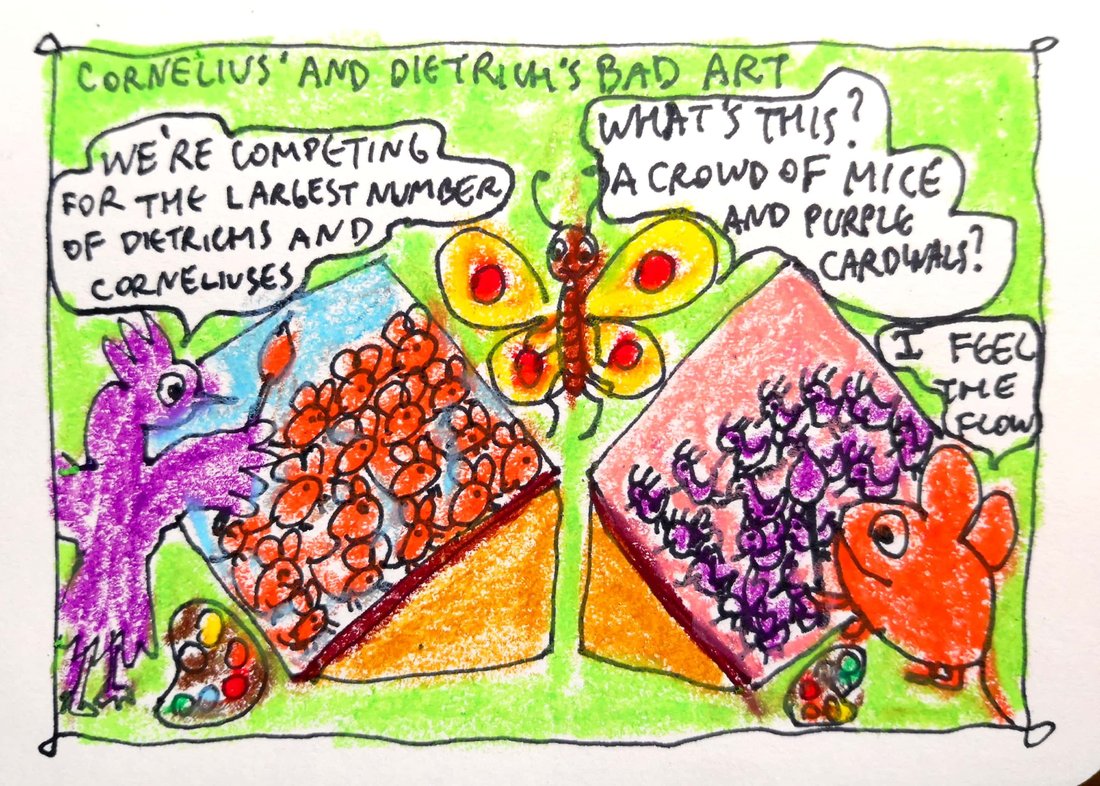
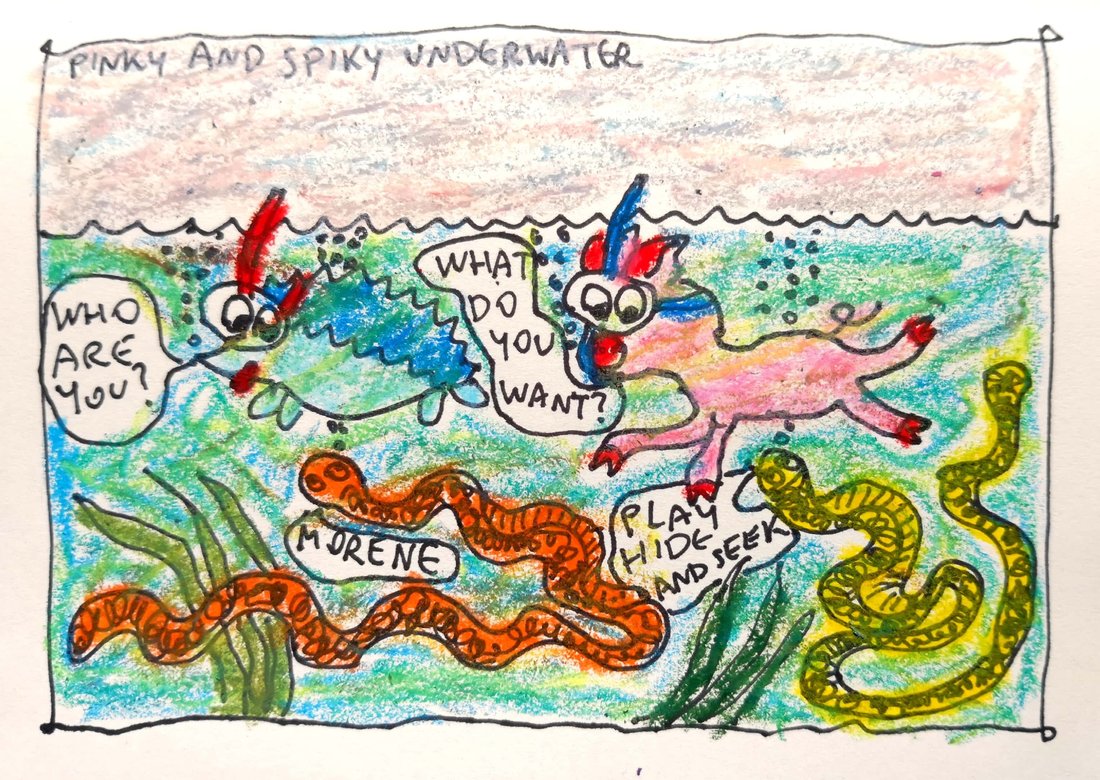
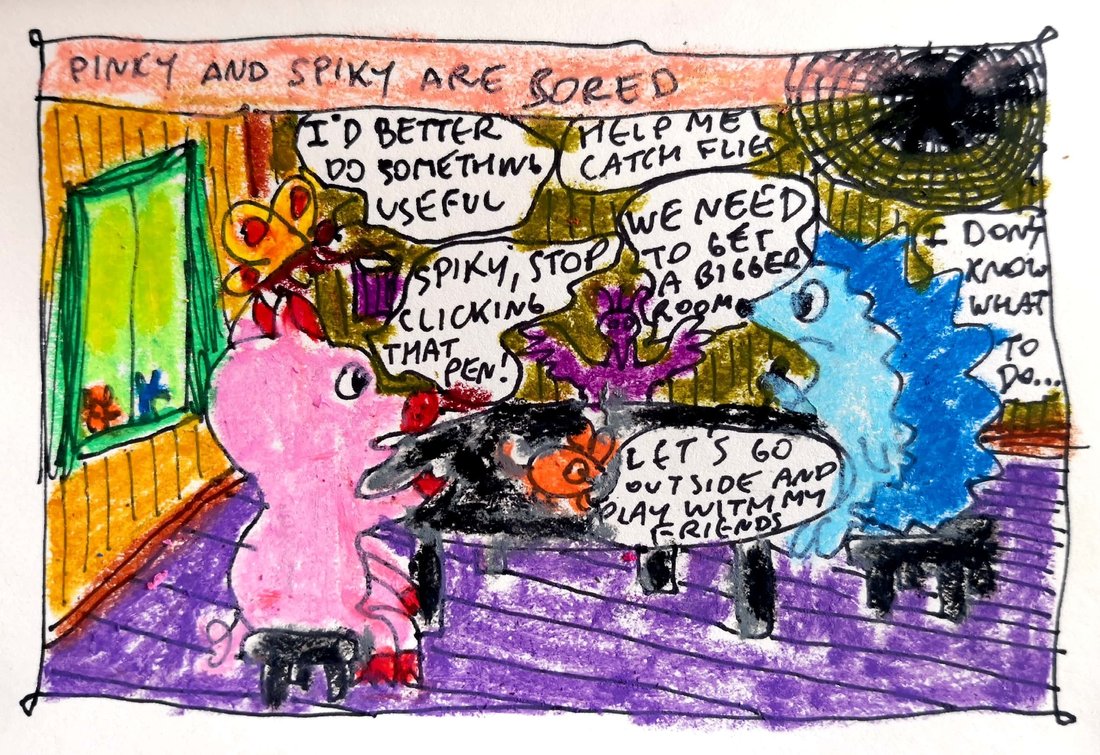
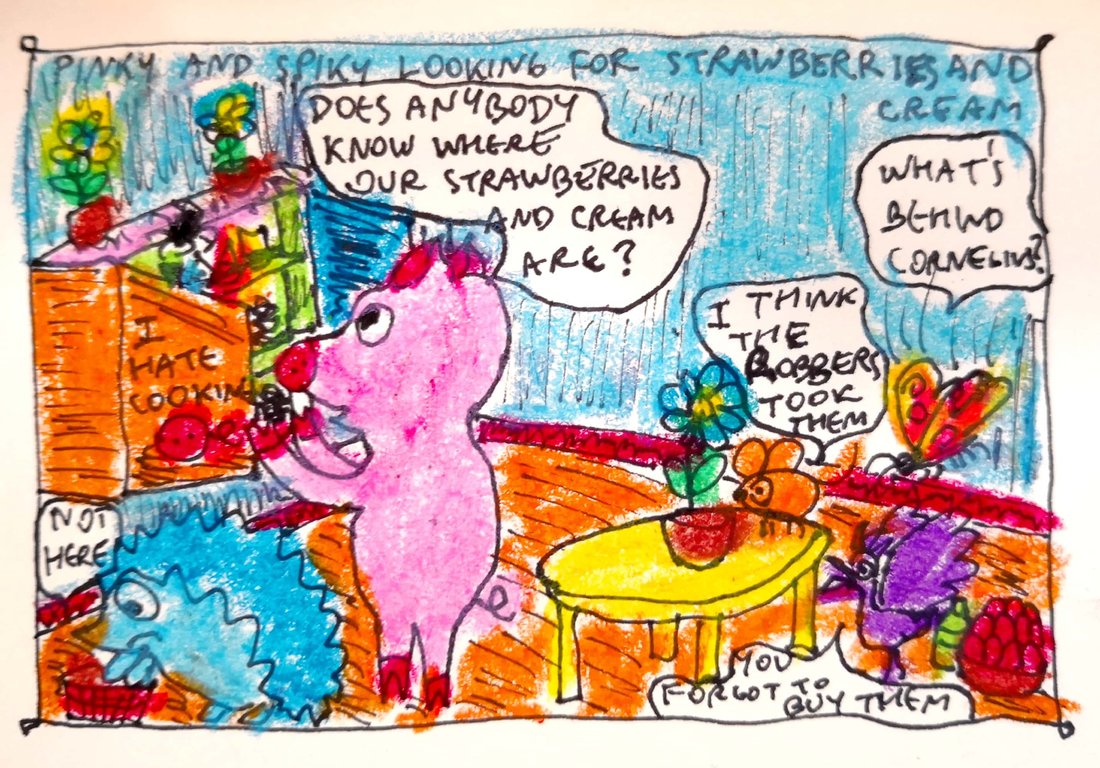
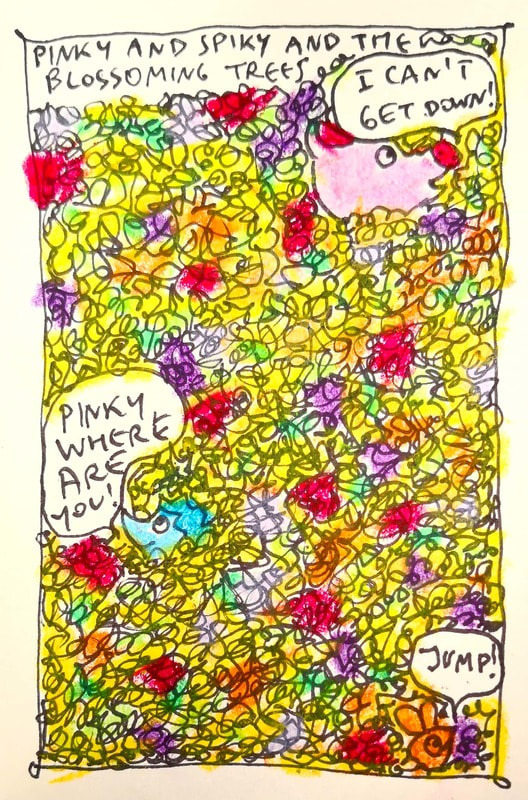
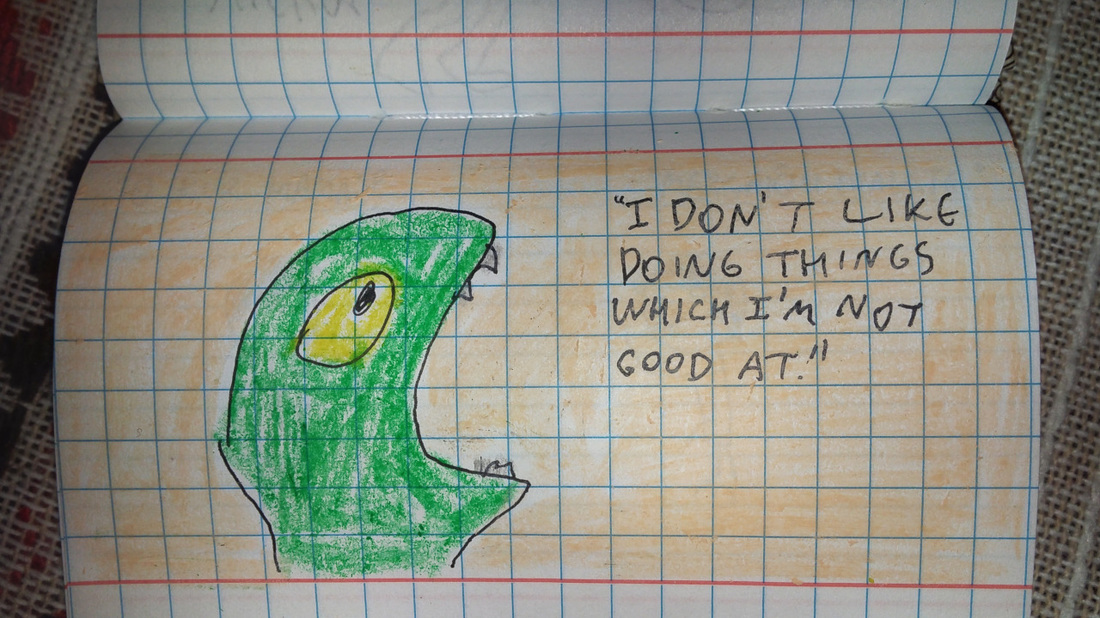
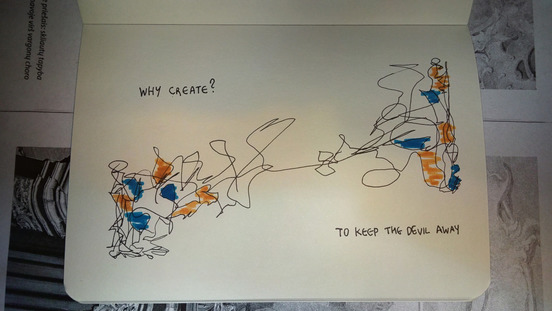



 RSS Feed
RSS Feed